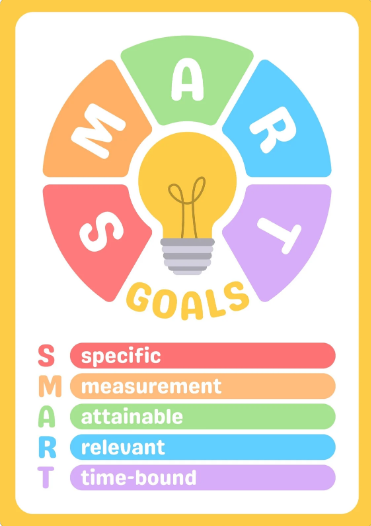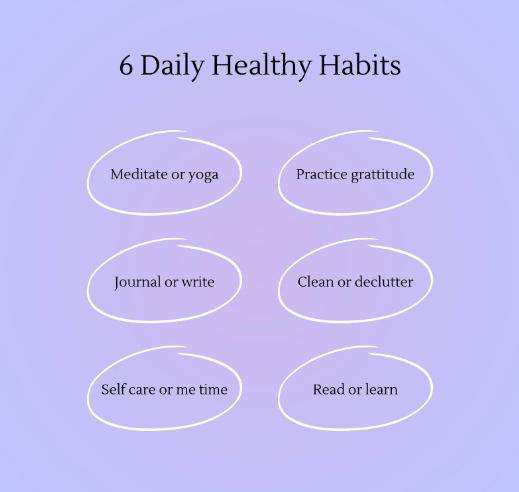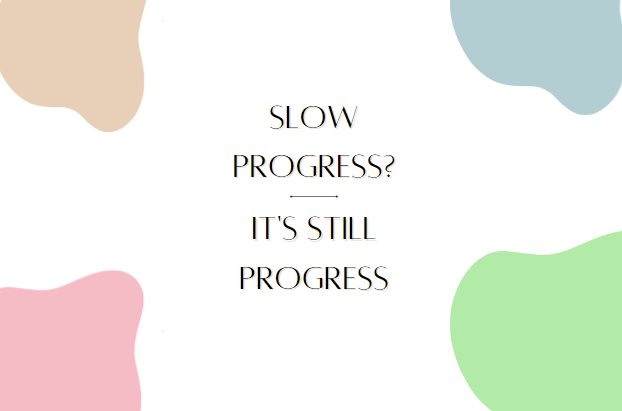Something has changed in your life, but not for the better. There is a long way between your intended destination and where you are now. Could this be the end? How long will you continue down this wrong path? How do you get your life back on track?
What You Need to Do to Take Control of Your Life and Back on Track
Life is dynamic. It can take a new turn and possibly an unwanted one at times. But it is hardly the end of the world. You can reclaim control and get back on course, provided you put in the work and stay committed to the cause.
While redemption is not impossible, knowing that the recovery journey is not a walk in the park is vital. It is even more tasking for those needing help with what to do or not. That is why most people in such situations get frustrated and give up.
Are you about to give up? Do not, yet! This blog discusses all you need to know about reclaiming control. In addition to helping you understand your current situation better, you will also learn the practical steps you can follow to get your life back on track.
Without wasting time, let’s see how to get my life back on track!
Understand Your Current Situation

Start with self-assessment. This is the first step towards regaining your life. You have asked yourself, how can I get my life back? But have you asked how far off are you from the target? Where and how did you take the wrong turn? Answer these questions to understand your life at the moment. You can also set realistic goals and put together a plan to achieve them based on your answers.
Reflect on your challenges
Seek to understand your challenges. With this, you can easily get a clear image of your situation. Do an honest and critical assessment. Include all parts of your life in the process. Your career, finances, relationships, health, and spirituality must all be involved.
How do you do this? You have a number of options to choose from. For example, you can adopt journaling–documenting your thoughts as orderly as possible. Another option is doing a SWOT analysis to understand your problems better. This method helps to outline the causes, impacts, and possible solutions to the problems.
How do I get my life on track? That is a good question. But you should also ask, what are the biggest challenges I currently face? How do they affect me? What are the causes? What are the possible solutions? Which of these solutions can I quickly execute?
Identify areas for improvement

Another way to get a clear picture of your present situation is to find out the areas of your life to improve on. Check your current level of performance in all areas of your life. You can do this using the SMART goal-setting strategy. You can also use a personal development plan.
Based on your findings, are you happy with where you currently are? Does your progress reflect your finances, relationship, career, or health goals? Do they correspond with your life purpose and vision? If they do not, you should do something about it. What you can do is set goals to improve these areas. These goals must be specific, measurable, achievable, relevant, and time-bound (SMART).
Put all your answers and findings down somewhere. You will need them as you move forward in this journey of how to get back on track in life.
Make Your Goals and Priorities Clear
You now know where your life is currently at. It is also clear which parts of your life you need to work on. Great! Moving forward, you can now set your goals. This will ensure you direct your energy and time towards what is important. It will also keep you focused on the journey.
Get your short-term and long-term goals right
Most of the work here is about setting the right goals. Your goals can be short-term or long-term. A long-term goal needs a long time to achieve. This could be years or decades. A short-term goal requires a shorter time. You can get them done in days, weeks, or months.
You should keep your goals SMART. This applies to both long-term and short-term goals. Keep them specific, measurable, achievable, relevant, and time-bound. Be ready to adjust them to ensure they are achievable.
Create an actionable plan
Your long-term and short-term goals are now clearly set. You can now move on to achieving them. So, you need to create a plan to achieve them. An actionable plan contains more details about your goals.
What tasks are involved in each goal? What resources do you need for them? How much time do you need to complete them? What are the realistic milestones for each? You must outline your answers to these questions in your actionable plan.
While designing your actionable plan, arrange tasks based on the order of importance. Adopt flexible and realistic deadlines for each. You should also keep track of your progress and results while making necessary adjustments to stay on course.
Developing Healthy Habits

How to get your life organized and back on track? You need to cultivate more healthy habits. Do the things that make you effortlessly happy and productive. Integrate activities that you enjoy into your daily routine. They will help you build an overall healthy lifestyle in the long run. So, how do we establish these habits? Let’s find out.
Improve your mental and physical health
Health is wealth. You can do nothing else if you are not physically and mentally okay. That is why you need to take your overall health seriously. Choose healthy habits that help you stay fit. Exercise regularly. Get enough sleep. Eat healthy meals. Build healthy relationships. Do some mindfulness and meditation to help your focus.
Create routine and consistency
You enjoy structure and orderliness when you build a life of consistency. Things become more stable for you. This allows you to create and maintain more healthy habits. All of these work together to take you closer to your goals and objectives. One of the healthy habits you can consider is working with a daily schedule. A schedule can help you complete tasks faster and on time. Another habit is having a morning/evening routine that prepares/relaxes you for the day.
Keep things simple
A simple and decluttered life can help you get back on track. When you reduce stress, you improve focus and stay healthy. So, you should form healthy habits that make your life simple.
If possible, choose a minimalist lifestyle. Such a lifestyle removes the unnecessary stuff around you. Only the important things remain. Those things that make your life valuable and easy. Reduce wastage to the minimum. A zero-waste lifestyle also helps to cut consumption. You use resources better.
Do not accept roles or relationships that do not align with your goals and values. You should also outsource certain responsibilities if you can.
Manage time better
Time management is crucial to getting your life back on track. Time is a limited resource. It is also valuable. So, you must do everything possible to maximize it. With time management strategies, you can cut out the irrelevant things. This leaves you to focus on the important things only.
You can improve time management in a few ways. For example, you can set goals and design plans to achieve them. You can also reduce interruptions to the minimum. If you can, take as many breaks as you can to preserve your focus on tasks.
Overcoming Obstacles and Staying Motivated

Again, there is no easy answer to the question of how to get your life on track. To reclaim your life will not be a walk in the park. There will be setbacks. There will be challenges. You will experience failures. Rejections and mistakes will arise. But in all of these, you need strong motivation and resilience. It is the only way to overcome. Let’s see how you can make this happen.
Deal with setbacks properly
There will always be setbacks on this type of journey. But make no mistake–it does not mean you are weak. It is never a sign of incompetence. Rather, it is life’s way of giving you opportunities to hone your resilience. You also get to learn and get better as a person.
The first step in dealing with setbacks is acceptance. You must accept the reality of the situation. Then identify the causes of these setbacks. Also, determine their possible outcomes. Which of these are within your control? Then, pick out the lessons. You need to understand the lessons to avoid a reoccurrence.
You must also take responsibility for your actions and inactions. Do not play the self-blame game. Instead, forgive yourself. In the end, it’s an opportunity to learn. You should also consider external support. Friends, family, coaches, and mentors can all be helpful.
Build resilience
A resilient person is unstoppable. They can come back from any setback. They are always up against any challenge. However, nobody is born with resilience in them. We all develop the quality over time. Your resilience can help you overcome challenges. It can also help you stay focused on this journey to reclaim your life.
You can build resilience by adopting a growth mindset. Be convinced that every difficult situation is a learning curve. You should also trust yourself more. Appreciate who you are and how far you have come.
Reclaiming Control Over Your Life
So far, we have established that it takes effort to get your life back. The process is dynamic and continuous. How to get life on track will differ for each person in terms of process. But one thing is common in every case–intentionality. The person must make deliberate choices. These choices must reflect their goals and purpose.
Are you looking to get your life back on track? You can start with the tips we have shared so far. Understand your current situation. Find the areas you can improve on. With these, you can easily set the right goals and priorities for your life.
Build on this by cultivating some healthy habits. Focus on the habits that support your well-being and productivity. Yes, obstacles will come. But they will be met with your resilience and dedication. These will see you through and get you to the finish line.
Conclusion: It’s a Marathon, not a Sprint
You now have an answer to the question of how to get yourself back after letting yourself go. The journey is rewarding. The benefits are immense. It improves your quality of life. It fulfils your potential. But it is also challenging.
Some people can go all the way on their own. Others cannot. If you feel you cannot do this alone, that’s okay. You can seek help. Look at people around you for support. Friends, family, mentors, and coaches can be very helpful on this journey.
Most importantly, take the first step today. Do it afraid, but do it now. Show up every day and do the little you can. It will all add up to form a major breakthrough. Remember, you are the master of your fate. You are the captain of your ship. It’s all in your hands.
Good luck.











